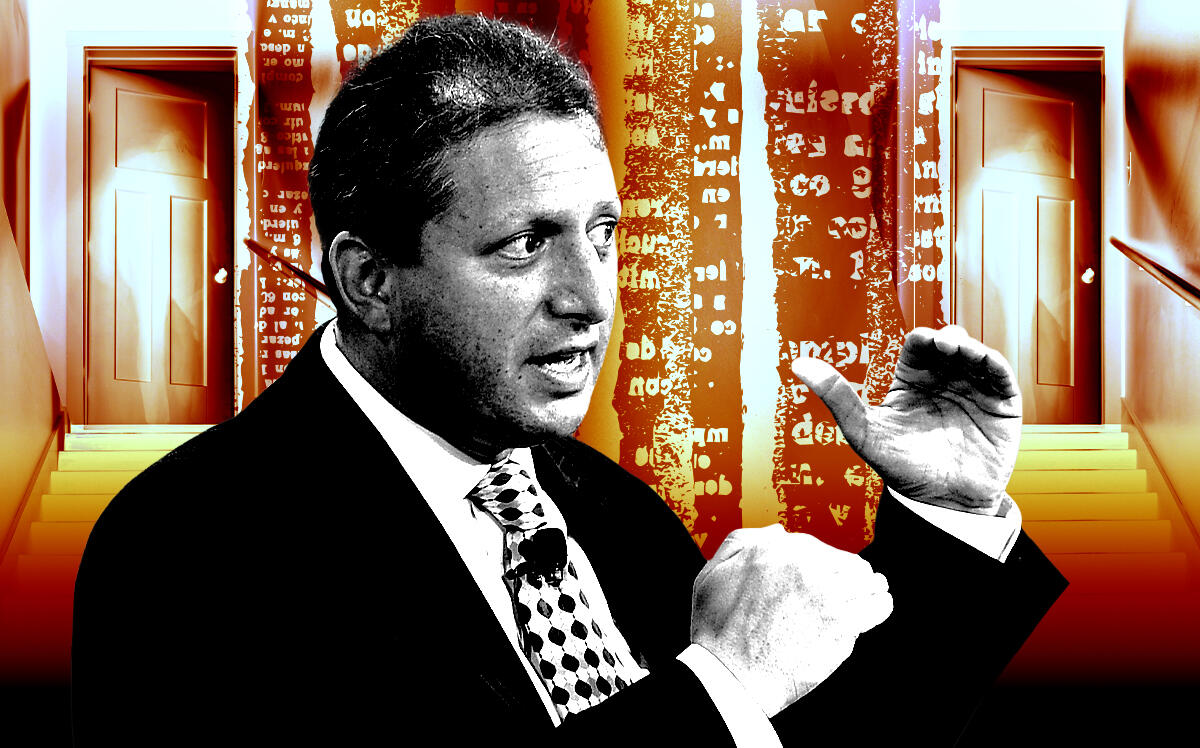After several failed attempts by the city and state to legalize basement apartments, Comptroller Brad Lander has a plan based on another complicated apartment-conversion law.
On Tuesday, Lander proposed the “Basement Resident Protection Law,” a state measure that would establish a city board to assess the fire and flood risk of existing basement apartments. The program would follow the state’s Loft Law, which temporarily legalized some former commercial and manufacturing spaces in the 1980s so that they could then be converted into rent-stabilized housing.
The proposal, which Lander has no power to enact, would similarly grant such units temporary legal status as a runway for them to be brought up to code.
The Pratt Center estimates that there are 300,000 to 500,000 families living in basements and cellars across the five boroughs. According to Lander’s office, 43,000 basement apartments face some type of flooding risk. A year ago, flooding from Hurricane Ida killed 13 people in the city, 11 of whom drowned in basement apartments. Those deaths reignited calls to legalize and ensure the safety of such apartments, but little has happened since.
Lander’s measure would legalize basement and cellar apartments for five years, during which time property owners must register the units with the board. With financial assistance from the city and state, owners would be required to immediately install fire and carbon monoxide detectors and a backwater protection valve to help prevent sewer water from entering units, while also ensuring that tenants have consistent heat, hot water and electricity. The program would also include a voucher program to relocate tenants in apartments the board deems unsafe.
The City reports that more than 100 families, some who were living in subterranean apartments, are still living in hotels after being displaced by the storm last September. A pilot program launched in East New York in 2019 to legalize basement apartments in the Brooklyn neighborhood has only enrolled eight of 8,000 eligible homeowners, in part due to city budget cuts and state regulations, the publication reported.
Last week, the Adams administration proposed an 18- to 24-month study on how to mitigate flooding of basement apartments.
Lander’s framework is intended to work alongside additional state legislation that would adjust ceiling height and square footage requirements, as well as other regulations that stand in the way of legalizing basement apartments. Such changes face an uphill battle: A measure to enable these conversions failed in the last legislative session, even after lawmakers dropped controversial language around allowing accessory dwelling units on single-family lots.
The bill had also included good cause eviction protections for tenants, but that provision was eliminated in subsequent versions. Lander’s framework similarly includes good cause eviction provisions, which would guarantee basement apartment dwellers a lease renewal and limit annual rent increases. This requirement could be an obstacle, given fierce industry opposition to statewide good cause eviction.
“Instead of coming up with another bureaucratic board, the comptroller should be putting his efforts behind passing ADU legislation that works for both property owners and renters,” Jay Martin, executive director of the Community Housing Improvement Program, said in a statement. “The ADU push failed in part because it had been tied to good cause eviction.”
Lander noted that tenants of basement apartments lack basic protections and that his program does not include a full-blown rent stabilization framework.
“If anything, we are proposing something slightly less restrictive to landlords than the Loft Law,” Lander said in an interview.
Like the lofts that became living quarters as manufacturers fled Lower Manhattan in the 1960s, basement units often lack basic services and safety measures. Landlords were eager to rent out those manufacturing spaces, but tenants did not have much legal recourse because their leases were not legitimate.
Luise Barrack, an attorney with Rosenberg & Estis with extensive experience on Loft Law cases, said that the effort to legalize basement apartments will likely mirror it in other, less-anticipated ways. The 1982 Loft Law was originally intended as a temporary fix, applying to buildings where at least three or more families lived in commercial or manufacturing spaces from April 1, 1980, through Dec. 1, 1981. The law has been extended and amended several times.
“Now, it is 2022 and there are still loft buildings from 1980 that are not legalized for a variety of reasons,” she said.
Barrack said landlord-tenant disputes and the complexity of the conversion process has held up the renovation of loft units. Conversion of the city’s basement apartments could similarly face longer-than-expected timelines, given the cost and challenge of bringing such units up to code.
“It doesn’t mean it shouldn’t happen,” she added. “You don’t want people to live in spaces that are not safe.”
